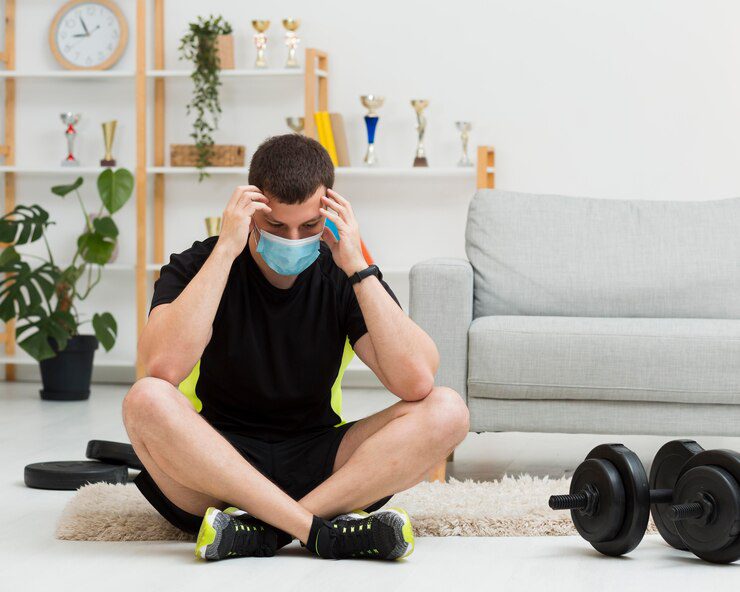In the ever-evolving world of wellness, there’s a growing recognition that mental health and physical fitness are deeply intertwined. While it’s well-known that physical exercise can boost mental well-being, the reverse is equally crucial: mental health significantly influences physical fitness. Understanding this connection can help you optimize both your mental and physical health, leading to a more balanced and fulfilling lifestyle.
The Mental Health-Fitness Connection
The relationship between mental health and physical fitness is complex and bidirectional. According to a study published in The Lancet Psychiatry, individuals with mental health conditions like anxiety and depression are less likely to engage in regular physical activity. Conversely, lack of exercise can exacerbate mental health issues, creating a vicious cycle of inactivity and poor mental well-being.
How Mental Health Affects Physical Fitness
Motivation and Energy Levels
Mental health plays a crucial role in determining your motivation and energy levels. When you’re feeling mentally drained or experiencing symptoms of depression, mustering the energy to work out can seem like an insurmountable challenge. According to the National Institute of Mental Health, nearly 60% of individuals with depression report significant decreases in physical activity.
Stress and Cortisol Levels
Chronic stress can lead to elevated cortisol levels, a hormone that, when elevated for prolonged periods, can negatively impact your fitness. High cortisol levels are associated with increased fat storage, muscle breakdown, and lower overall physical performance. Managing stress through mental health practices can therefore positively influence your fitness levels.
Sleep Quality
Mental health issues like anxiety and depression often lead to poor sleep quality. According to the American Psychological Association, individuals with insomnia or other sleep disorders are more likely to experience reduced physical performance and longer recovery times. Better sleep, facilitated by improved mental health, can enhance your physical endurance and recovery.
Self-Esteem and Body Image
Mental health conditions can affect your self-esteem and body image, which in turn can impact your willingness to engage in physical fitness. Individuals with low self-esteem or negative body image may avoid exercise due to fear of judgment or perceived inadequacy. Fostering a positive mental health outlook can help improve self-esteem and encourage a more active lifestyle.
Strategies to Enhance Mental Health for Better Fitness
Incorporate Mindfulness and Meditation
Mindfulness and meditation are powerful tools for improving mental health and, by extension, physical fitness. Studies show that mindfulness practices can help with stress management and anxiety, leading to improved exercise adherence and performance. Setting aside a few minutes each day for meditation can help you stay focused and motivated.
Example: Try guided mindfulness sessions through apps like Headspace or Calm to start your day with a clear mind.
Set Realistic Fitness Goals
Setting achievable fitness goals can provide a sense of accomplishment and boost mental well-being. Break down larger fitness goals into smaller, manageable milestones to avoid feeling overwhelmed and to maintain motivation.
Example: Instead of aiming to lose 20 pounds, start with a goal of running 2 miles, and gradually increase the distance.
Engage in Regular Physical Activity
Consistent exercise has been proven to alleviate symptoms of anxiety and depression. The release of endorphins during exercise creates a “feel-good” effect, which can enhance mood and overall mental health. Aim for at least 150 minutes of moderate aerobic activity or 75 minutes of vigorous activity per week, as recommended by the World Health Organization.
Example: Incorporate activities you enjoy, such as dancing, swimming, or cycling, to make exercise a fun and rewarding experience.
Seek Professional Support
If you’re struggling with mental health issues, seeking professional support from a therapist or counselor can be beneficial. Mental health professionals can provide strategies to manage stress and anxiety, which can positively impact your physical fitness journey.
Example: Cognitive Behavioral Therapy (CBT) is an evidence-based approach that can help address negative thought patterns and improve mental well-being.
Maintain a Balanced Diet
Nutrition plays a critical role in both mental and physical health. A balanced diet rich in nutrients can support cognitive function and physical performance. Incorporate foods high in omega-3 fatty acids, vitamins, and minerals to support brain health and overall fitness.
Example: Include foods like salmon, leafy greens, and nuts in your diet to support both mental and physical health.
Conclusion
The interplay between mental health and physical fitness is a dynamic and essential aspect of overall well-being. By addressing mental health challenges and adopting strategies to improve mental resilience, you can enhance your physical fitness and lead a more balanced, active life. Remember, taking care of your mental health is not just about reducing stress or managing symptoms—it’s about creating a foundation for better physical health and a more fulfilling life. So, let’s prioritize mental well-being as a crucial component of our fitness journey and embrace the positive changes that follow.







